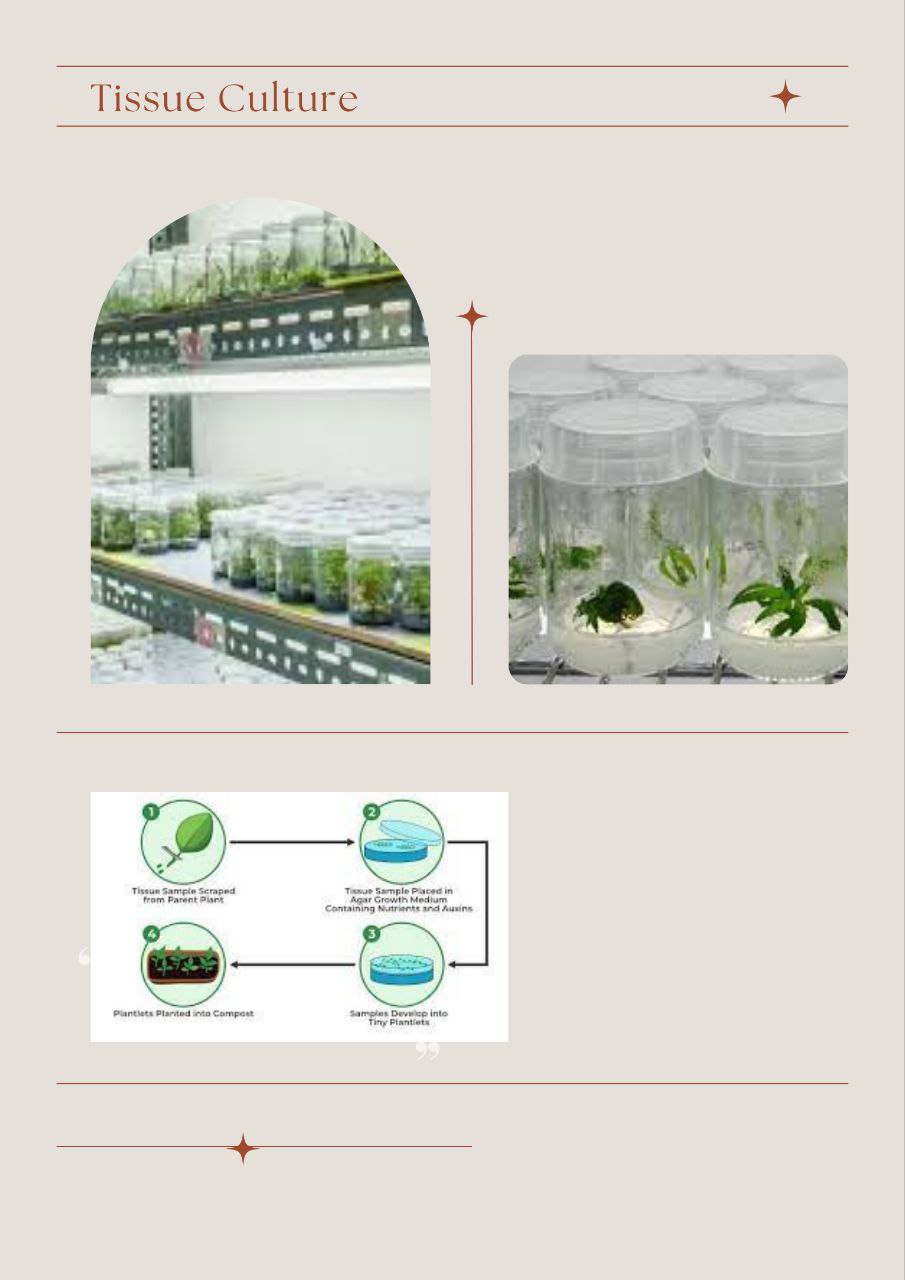Tissue Culture
The plant tissue culture system offers several economic and environmental benefits that make it an attractive option for plant propagation, conservation, and genetic improvement.
One of the significant economic benefits of the system is that it allows for the production of large numbers of genetically identical plants in a relatively short period, which is essential for commercial agriculture.
This system also enables the development of new plant varieties with desirable traits, leading to increased yields and reduced crop losses.
Additionally, the production of disease-free plants through plant tissue culture can help to reduce the use of pesticides and chemicals in agriculture, which can have both economic and environmental benefits.
By reducing the use of chemicals, we can reduce the risk of contamination of soil and water bodies, thus promoting environmental sustainability.
Moreover, the use of plant tissue culture can also help in the conservation of rare and endangered plant species, which is crucial for preserving biodiversity and promoting ecosystem health.
Therefore, the plant tissue culture system offers both economic and environmental benefits, making it an essential tool in modern agriculture and plant science.

